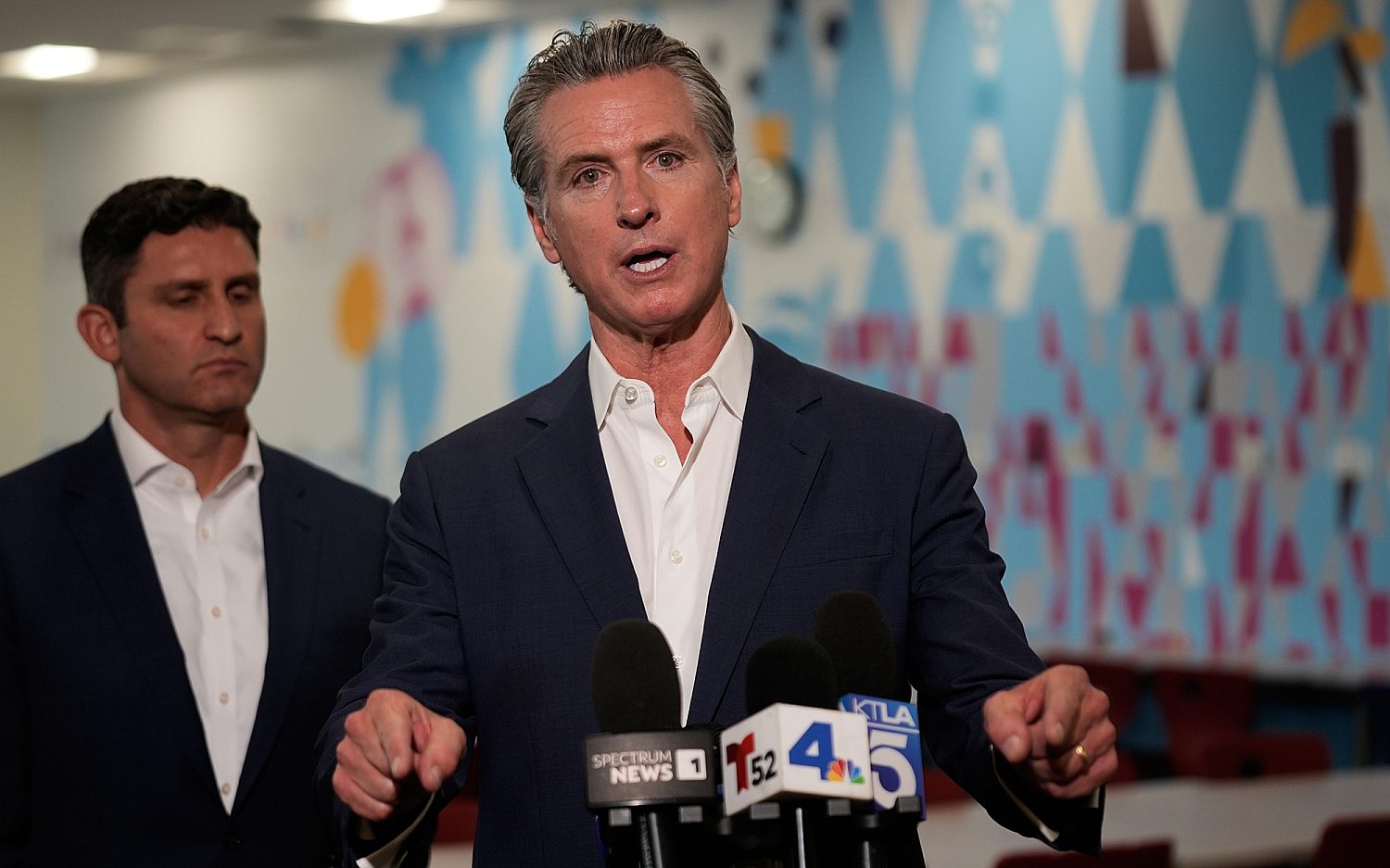ACLU state director resigns over biology-based gender beliefs
The state executive director of Georgia’s American Civil Liberties Union chapter resigned Thursday amid the nationwide debate over whether gender is determined by biology or feelings.
In announcing her resignation, Maya Dillard Smith called for civil discourse on the issue of competing civil liberties. A frightening encounter she and two of her daughters had in a women’s restroom with three persons “who were obviously men” forced her to study more deeply the intersection of civil rights and public safety.
At the time of her appointment, Smith was the youngest executive director and one of only three African-Americans to hold one of the ACLU’s 53 state-district positions. It soon became obvious to her that she could not question the organization’s mandate that a person’s sex be defined by their gender identity and not biology. Recognizing the ethical and legal implications of the conflicting ideologies, Smith advocated for middle ground but found her ACLU cohorts adamantly entrenched.
“There is not an opportunity to have robust discourse on the competing civil rights that are implicated—not only in the context of bathrooms and the advancement of transgender rights,” Smith told Fox News’ Megyn Kelly on Thursday. “But even in the context of religious refusal bills which you’ve seen across the country.”
Smith noted the ACLU’s opposition to Georgia’s own religious liberty bill, which failed earlier this year following vitriolic attacks by LGBT advocates, like the ACLU, that labeled the legislation bigoted and anti-gay. In her interview with Kelly, Smith said the ACLU’s unwavering efforts to strike down laws like Georgia’s and North Carolina’s so-called “bathroom bill” will have consequences her peers in civil rights law refuse to consider.
It was her own experience as a mother that forced Smith to think more deeply about the conflicting interests at play in LGBT advocates’ push for so-called civil rights. Before taking on the ACLU executive director job, Smith and her family lived in the San Francisco Bay area. A trip to a public bathroom with two of her three daughters put her “at the crux of transgender rights-bathroom controversy.”
Three transgender women “all over six feet tall, all with really deep voices, all obviously men” followed Smith and her two daughters into the restroom. Her daughters were “visibly frightened” and Smith was “very uncomfortable” and unprepared to answer her daughters’ questions, she told Kelly.
Smith, a graduate of the University of California Hastings College of Law, admitted prior to that incident she was not “up to speed” on the issue of public accommodation for gender dysphoric persons. So she began researching the issue and took the ACLU position believing she could ask questions.
But on Thursday, the ACLU’s LGBT and HIV Project director, James Esseks, made it clear in a post to his “Speak Freely” blog there was no room for discussion.
“When it comes to single-sex spaces and activities, the ACLU has a clear position: Transgender people can use facilities and participate in activities that match who they are,” Esseks wrote, noting bathroom usage also was an issue in the Civil Rights movement. “We believe it is not only the right answer from a human point of view, but it is also legally required by statutory and constitutional bans on sex discrimination.”
In her interview with Kelly, Smith asked, “What are the implications on the rights of women and girls? What are the implications on the rights of parents?”
Smith demonstrated her belief in fundamental free speech rights when, shortly after taking the director’s job, she joined the ACLU’s defense of a Georgia Ku Klux Klan affiliate. The group had been denied sponsorship of a strip of highway in the state’s beautification program. Georgia did not want to post the necessary road-side sign declaring the strip of roadway for the group known for its racist and violent past. Smith disagreed. Freedom of speech is a principle guaranteed to all people, even those whose speech is deemed offensive, she said.
But the ACLU would not let Smith speak freely about her own concerns. Although Esseks did not mention Smith in his post, the timing of its release makes it a likely response to her resignation and a reminder of where the organization stands—unwaveringly—on the issue of transgender persons’ public accommodation.
“When transgender individuals are barred from using restrooms that match who they are, they are essentially closed off from participating in public life. A transgender woman is a woman. To tell her (as to tell any woman) that she must use the men’s room undermines her identity,” Esseks wrote.
The ACLU declined to answer questions about Smith’s resignation, saying it was a personnel matter.
Although Smith finally had to admit she and the ACLU had principle and philosophical disagreements, she hasn’t given up seeking middle ground. With the hope of establishing a civil conversation about a deeply emotional issue, Smith launched a website called, “Finding Middle Ground—a safe space to communicate about civil rights for all.”
The one-page site includes a video featuring a school-age, African-American girl on a playground swing. She talks about her concerns about having a man in the women’s restroom but also speaks compassionately about the boy “who feels like a girl on the inside.”
“How can we ask these kinds of questions without being called a homophobe?” the video asks.
An actual newsletter worth subscribing to instead of just a collection of links. —Adam
Sign up to receive The Sift email newsletter each weekday morning for the latest headlines from WORLD’s breaking news team.





Please wait while we load the latest comments...
Comments
Please register, subscribe, or log in to comment on this article.